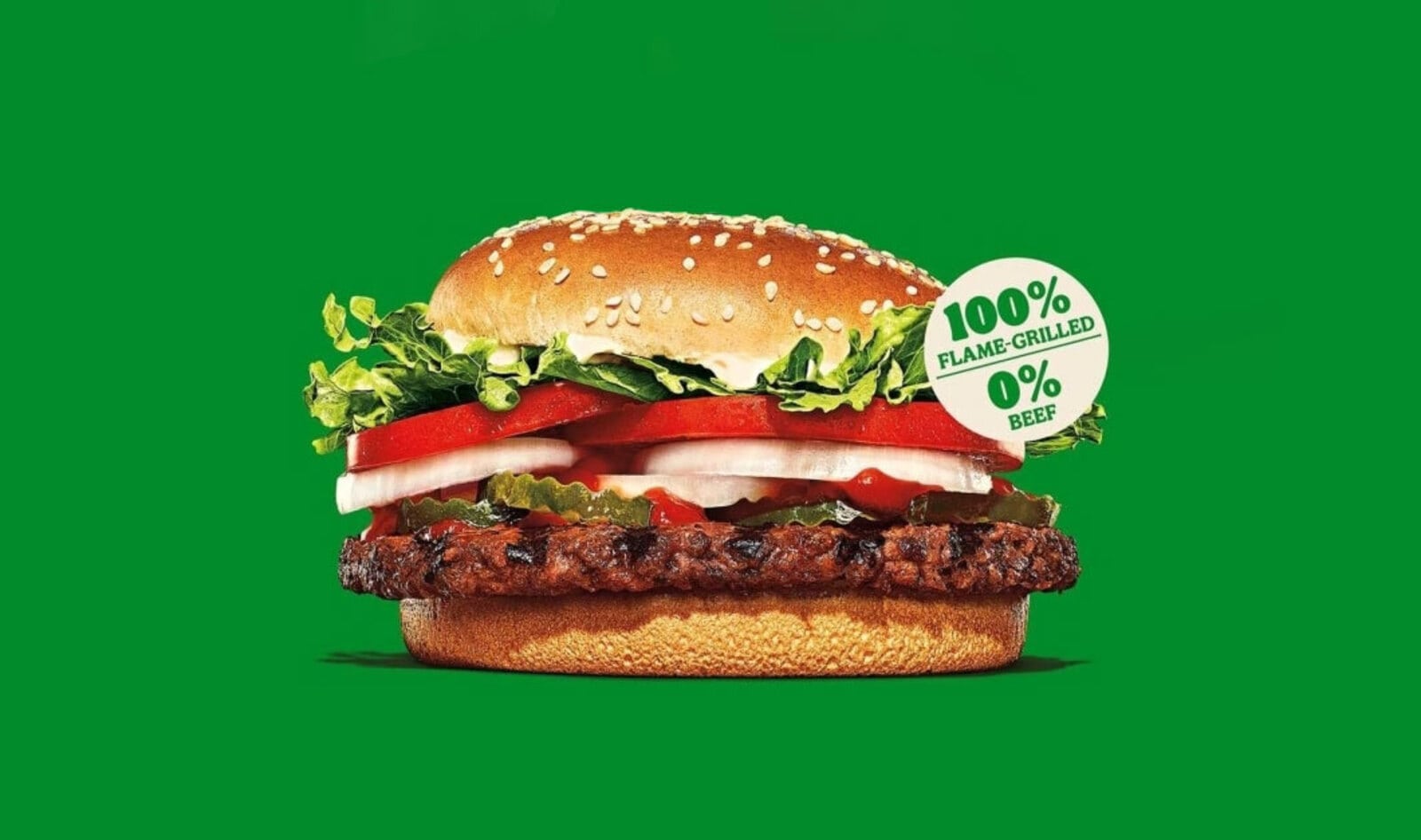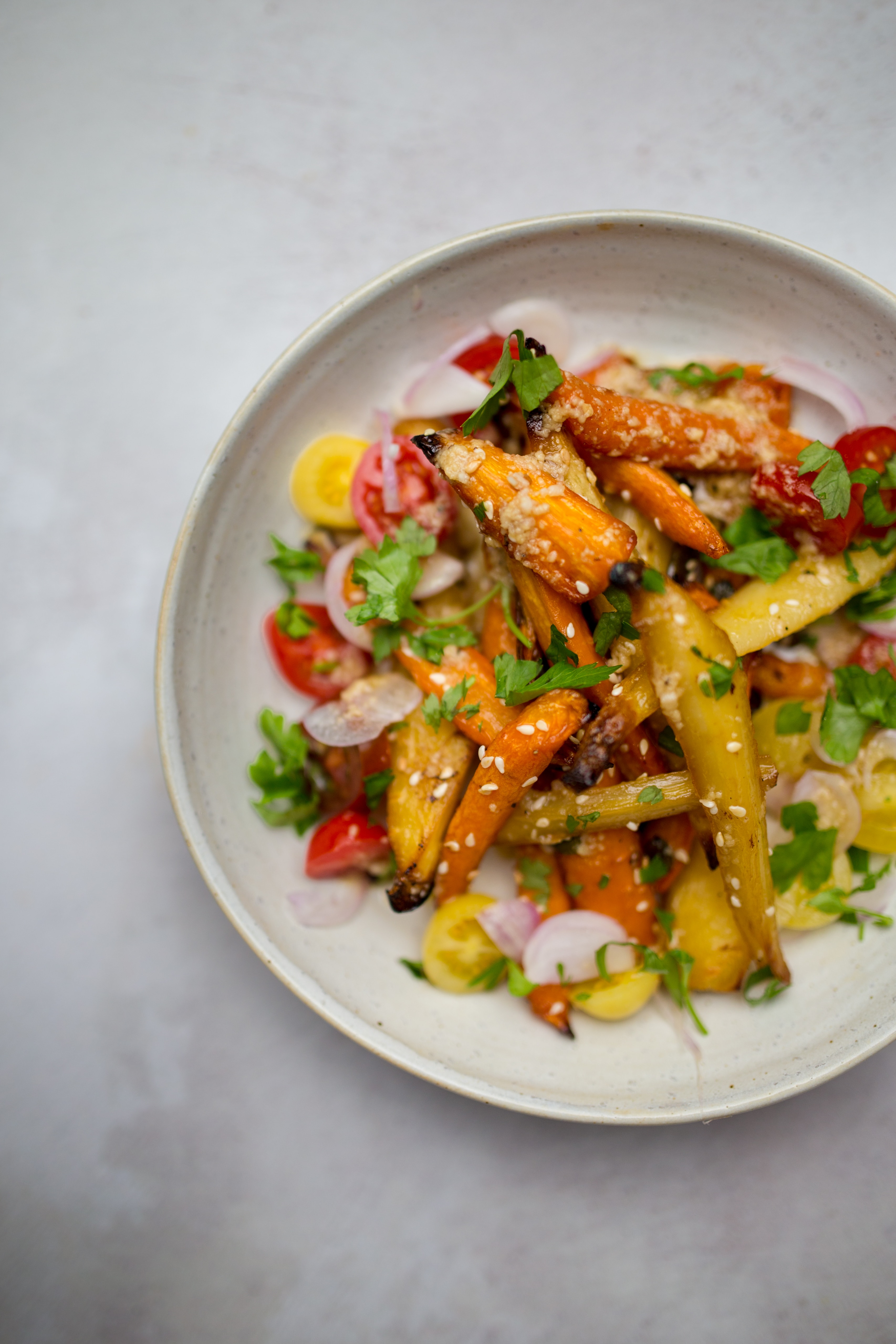How The Netherlands Became World’s First Country With No Stray Dogs on the Streets
Pets, as cherished members of our families, deserve rights and protections that ...

Researchers have found that listing the carbon footprint of dishes on menus encourages diners to choose more climate-friendly meals.
According to research conducted by the University of Würzburg in Germany, restaurants that offer colour-coded information about the greenhouse gas emissions associated with each meal can motivate customers to go for more environmentally friendly options.

Photo: Courtesy of Burger King’s Plant-Based Whopper
“The participants in our study chose the veggie burger more often when it was presented as the standard option on the menu and not the beef burger, as is usually the case”, said Dr. Benedikt Seger, a psychologist who led the study.
Involving 265 volunteers, the study provided nine menus to participants, featuring details about greenhouse gas emissions. The menus included options like couscous salad, which could be ordered with beef (high emission), chicken (medium emission), or falafel (low emission). Perhaps surprisingly, the results showed that when the participants had access to these labels, they tended to opt for more climate-friendly dishes. This led to an average reduction of 200 grams of carbon emissions per meal.
Moreover, Dr. Seger emphasised that the results were remarkable since not all participants gave up meat dishes or other CO2-intensive meals solely due to the labels. The researchers’ findings demonstrated that people were willing to address the urgent issue of the climate crisis even through small, everyday decisions like ordering a meal. He also pointed out that this willingness to consider climate impact while dining is not self-evident, as people typically focus on enjoying the food, atmosphere, and social interactions in a restaurant, rather than contemplating existential threats like the climate crisis.

When a restaurant presents the vegetable patty instead of the meat patty as a standard option on its burger menu, it effectively conveys the message. Dr. Seger added, “In psychology, we call this a descriptive norm. This presumed knowledge of what others do in a certain situation—regardless of whether it is desired or accepted—can have a significant influence on behaviour.”
This interesting research suggests the potential of providing clear information about emissions on menus as an effective strategy to promote greener dietary choices. It’s also a promising beginning in motivating diners to think about the impact of their food choices on climate change. As a result, Koktail hopes Thailand’s restaurants may find inspiration in this simple and effective concept.
Pets, as cherished members of our families, deserve rights and protections that ...
These top 5 barber shops in Bangkok are where gentlemen can elevate ...
Sailorr and Molly Santana’s black grills fuse hip-hop swagger with homage to ...
Wandering around the globe, try out the signature tastes of cultures across ...
Once punk was a middle finger to the establishment, with Vivienne Westwood ...
You’ve seen their art, but do you know the pain behind it? ...
Wee use cookies to deliver your best experience on our website. By using our website, you consent to our cookies in accordance with our cookies policy and privacy policy